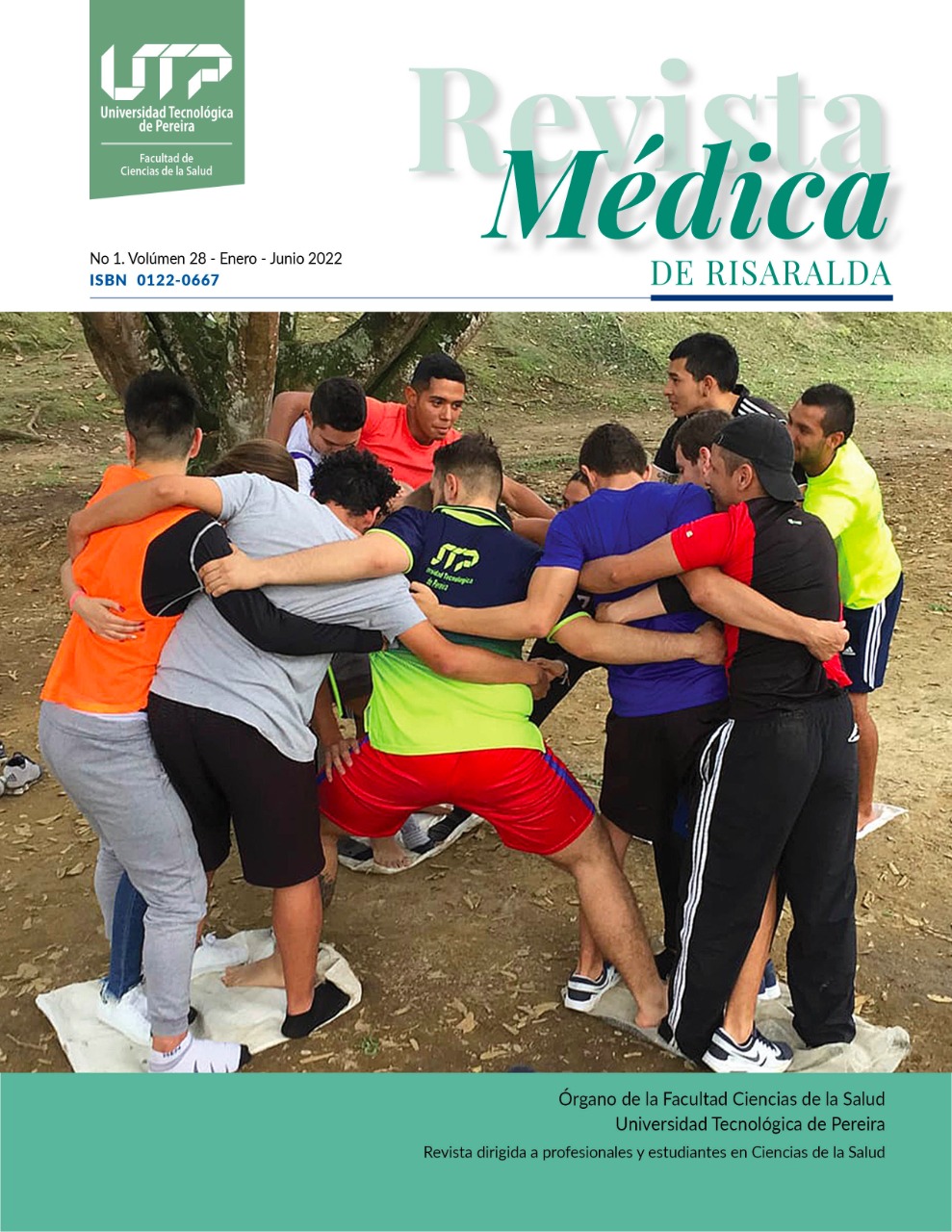Reaching fertility, an antibiotic treatment solves the problem of an infertile couple: A case report.
DOI:
https://doi.org/10.22517/25395203.24927Keywords:
Male infertility, Bacteriospermia, Semen, Microbiota, FertilityAbstract
The presence of bacteria in semen -bacteriospermia- is a pathological condition associated with infertility, which presentsa prevalence of up to 35%. We describe the successful management during infertility consultation of a patient suffering from oligoasthenozoospermia.
A 33-year-old male patient with a history of difficulty conceiving, a history of orchiectomy due to testicular torsion at 16 years of age, and Chlamydia trachomatis infection at 20 years of age. The physical examination showed normal results, and testicular Doppler ultrasonography presented mild left varicocele. The semen analysis reportedoligoasthenozoospermia, positive semen culture on blood agar for Streptococcus spp, and positive chocolate agar for Streptococcus spp. The treatment started with ampicillin-sulbactam administration for 14 days and a check-up after three months with a new semen analysis which showed an improved concentration and progressive sperm motility. Finally, the couple achieved a successful pregnancy.
Bacterial colonization of semen contributes to seminal quality alterations; therefore, determining bacteria's presence in infertile couples could help improve seminal parameters and achieve a successful pregnancy.
Downloads
References
Kumar N, Singh AK. Trends of male factor infertility, an important cause of infertility: A review of literature. J Hum Reprod Sci. 2015;8(4):191-6. DOI: 10.4103/0974-1208.170370
Vilvanathan S, Kandasamy B, Jayachandran AL, Sathiyanarayanan S, Tanjore Singaravelu V, Krishnamurthy V, et al. Bacteriospermia and Its Impact on Basic Semen Parameters among Infertile Men. Interdiscip Perspect Infect Dis. 2016;2016:2614692. DOI: 10.1155/2016/2614692
Baud D, Pattaroni C, Vulliemoz N, Castella V, Marsland BJ, Stojanov M. Sperm Microbiota and Its Impact on Semen Parameters. Front Microbiol. 2019;10:234.DOI: 10.3389/fmicb.2019.00234
A. Cano-Chaves, S. Galarzo-Pardo, J. Puerta-Suarez, M. Giraldo, A.P. Cadavid, W.D. Cardona-Maya. Efecto de las bacterias uropatógenas y de los factores solubles de su metabolismo sobre la calidad espermática: Escherichia coli y Enterococcus faecalis. Clínica e Investigación en Ginecología y Obstetricia. 2017; 44 (3): 106-112. DOI: 10.1016/j.gine.2015.11.005
Zeyad A, Hamad M, Amor H, Hammadeh ME. Relationships between bacteriospermia, DNA integrity, nuclear protamine alteration, sperm quality and ICSI outcome. Reprod Biol. 2018;18(1):115-21. DOI: 10.1016/j.repbio.2018.01.010
Nasrallah Y, Anani M, Omar H, Hashem A. Microbiological profiles of semen culture in male infertility. Hum Androl. 2018;8(2):34-42.DOI: 10.21608/ha.2018.3207.1023
Makler A, Urbach Y, Lefler E, Merzbach D. Factors affecting sperm motility. VI. Sperm viability under the influence of bacterial growth in human ejaculates. Fertil Steril. 1981;35(6):666-70. DOI: 10.1016/s0015-0282(16)45562-7
Moretti E, Capitani S, Figura N, Pammolli A, Federico MG, Giannerini V, et al. The presence of bacteria species in semen and sperm quality. J Assist Reprod Genet. enero de 2009;26(1):47-56. doi: 10.1007/s10815-008-9283-5
Rajasekaran M, Hellstrom WJ, Naz RK, Sikka SC. Oxidative stress and interleukins in seminal plasma during leukocytospermia. Fertil Steril. 1995;64(1):166-71.
Skau PA, Folstad I. Do bacterial infections cause reduced ejaculate quality? A meta-analysis of antibiotic treatment of male infertility. Behav Ecol. 1 de enero de 2003;14(1):40-7.https://doi.org/10.1093/beheco/14.1.40
Baker HW, Straffon WG, McGowan MP, Burger HG, de Kretser DM, Hudson B. A controlled trial of the use of erythromycin for men with asthenospermia. Int J Androl. 1984;7(5):383-8. DOI: 10.1111/j.1365-2605.1984.tb00795.x
Downloads
-
Vistas(Views): 1048
- PDF (Español (España)) Descargas(Downloads): 290
- PDF Descargas(Downloads): 99
Published
Versions
- 2022-09-17 (6)
- 2022-09-16 (5)
- 2022-08-24 (4)
- 2022-06-30 (3)
- 2022-06-25 (2)
- 2022-02-14 (1)
How to Cite
Issue
Section
License
Cesión de derechos y tratamiento de datos
La aceptación de un artículo para su publicación en la Revista Médica de Risaralda implica la cesión de los derechos de impresión y reproducción, por cualquier forma y medio, del autor a favor de Facultad de Ciencias de la Salud de la Universidad Tecnológica de Pereira. 1995-2018. Todos los derechos reservados ®
por parte de los autores para obtener el permiso de reproducción de sus contribuciones. La reproducción total o parcial de los trabajos aparecidos en la Revista Médica de Risaralda, debe hacerse citando la procedencia, en caso contrario, se viola los derechos reservados.
Asimismo, se entiende que los conceptos y opiniones expresados en cada trabajo son de la exclusiva responsabilidad del autor, sin responsabilizarse ni solidarizarse, necesariamente, ni la redacción, ni la editorial.
Es responsabilidad de los autores poder proporcionar a los lectores interesados copias de los datos en bruto, manuales de procedimiento, puntuaciones y, en general, material experimental relevante.
Asimismo, la Dirección de la revista garantiza el adecuado tratamiento de los datos de carácter personal



